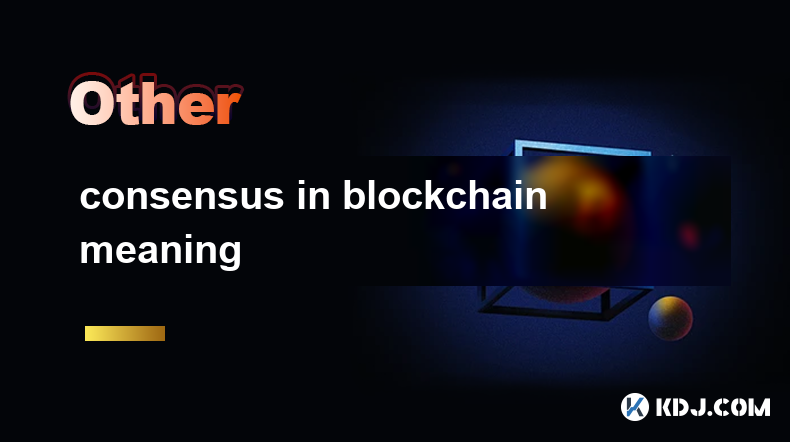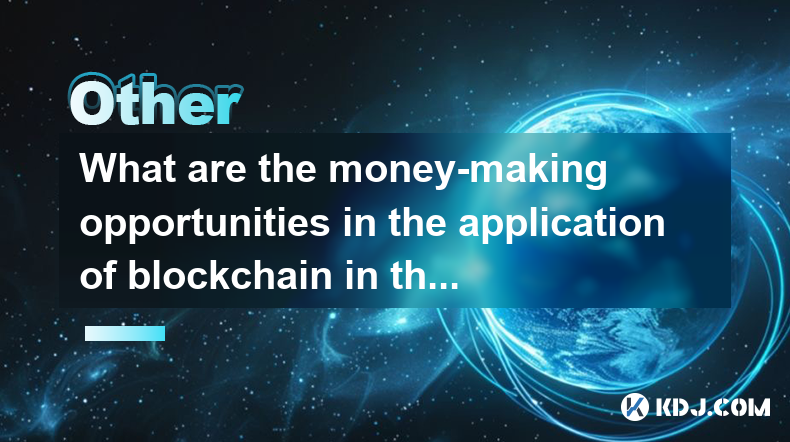-
 Bitcoin
Bitcoin $83,321.4268
1.92% -
 Ethereum
Ethereum $1,805.0367
1.69% -
 Tether USDt
Tether USDt $0.9993
-0.05% -
 XRP
XRP $2.1395
7.26% -
 BNB
BNB $594.8880
1.85% -
 Solana
Solana $119.4789
4.69% -
 USDC
USDC $0.9997
-0.04% -
 Dogecoin
Dogecoin $0.1698
7.63% -
 Cardano
Cardano $0.6677
6.83% -
 TRON
TRON $0.2403
2.57% -
 UNUS SED LEO
UNUS SED LEO $9.3931
-0.01% -
 Toncoin
Toncoin $3.4098
-4.38% -
 Chainlink
Chainlink $12.8159
2.86% -
 Stellar
Stellar $0.2605
3.26% -
 Avalanche
Avalanche $18.2959
1.70% -
 Sui
Sui $2.2472
0.47% -
 Shiba Inu
Shiba Inu $0.0...01231
1.39% -
 Hedera
Hedera $0.1660
6.00% -
 Polkadot
Polkadot $4.0976
4.31% -
 Litecoin
Litecoin $83.9330
2.88% -
 MANTRA
MANTRA $6.3850
1.06% -
 Bitcoin Cash
Bitcoin Cash $300.7858
1.83% -
 Bitget Token
Bitget Token $4.5326
1.30% -
 Dai
Dai $0.9998
-0.02% -
 Ethena USDe
Ethena USDe $0.9993
-0.03% -
 Monero
Monero $214.8497
2.22% -
 Hyperliquid
Hyperliquid $11.5517
2.18% -
 Uniswap
Uniswap $5.8645
2.37% -
 Pi
Pi $0.5305
-4.75% -
 NEAR Protocol
NEAR Protocol $2.5052
4.19%
consensus in blockchain meaning
Blockchain's consensus mechanisms, like Proof-of-Work and Proof-of-Stake, ensure data integrity by requiring network agreement on valid transactions, preventing fraud, though each offers different trade-offs in speed, security, and energy efficiency.
Mar 25, 2025 at 04:28 pm

Key Points:
- Consensus mechanisms are the backbone of blockchain technology, ensuring data integrity and security.
- Different consensus mechanisms offer varying levels of speed, security, and scalability.
- Understanding consensus is crucial for anyone involved in the cryptocurrency space.
- Common mechanisms include Proof-of-Work (PoW), Proof-of-Stake (PoS), and Delegated Proof-of-Stake (DPoS).
- Each mechanism has its strengths and weaknesses regarding energy consumption, transaction speed, and security.
Consensus in Blockchain: Meaning and Mechanisms
The term "consensus" in the context of blockchain refers to the process by which a decentralized network of computers agrees on the valid state of the blockchain. This agreement is crucial because it prevents fraudulent transactions and ensures the integrity of the entire system. Without a robust consensus mechanism, the blockchain would be vulnerable to attacks and manipulation. Think of it as a digital agreement amongst independent nodes.
Proof-of-Work (PoW): The Original Consensus
PoW, pioneered by Bitcoin, is a computationally intensive process. Miners compete to solve complex cryptographic puzzles. The first miner to solve the puzzle adds the next block of transactions to the blockchain, receiving a reward in cryptocurrency. This process requires significant computing power, making it resistant to attacks. However, its energy consumption is a major drawback.
Proof-of-Stake (PoS): A More Energy-Efficient Alternative
PoS is a consensus mechanism that selects validators based on the amount of cryptocurrency they hold (their "stake"). Validators propose and verify blocks, earning rewards proportional to their stake. This system is significantly more energy-efficient than PoW, as it doesn't rely on extensive computational power. However, it can be susceptible to "nothing-at-stake" attacks if validators are not careful.
Delegated Proof-of-Stake (DPoS): A Hybrid Approach
DPoS combines elements of both PoW and PoS. Instead of all stakeholders validating transactions, users vote for delegates (validators) to represent them. The delegates with the most votes validate transactions and earn rewards. This system is generally faster and more energy-efficient than PoW but can lead to centralization if a few delegates control a significant portion of the network.
Practical Byzantine Fault Tolerance (PBFT): A Different Perspective
PBFT is a deterministic consensus mechanism used in some permissioned blockchains. It requires a trusted set of nodes, and a designated leader proposes blocks. The other nodes then verify the block. If a majority agrees, the block is added to the blockchain. This approach offers high throughput and low latency, but its reliance on a trusted set of nodes limits its decentralization.
Other Notable Consensus Mechanisms
Beyond the prominent mechanisms mentioned above, several other approaches are gaining traction within the crypto space. These include Proof-of-Authority (PoA), Proof-of-History (PoH), and various hybrid models that combine the strengths of different algorithms. Each mechanism presents unique trade-offs regarding security, scalability, and energy efficiency. The choice of consensus mechanism significantly impacts a blockchain's overall performance and characteristics.
Understanding the nuances of each consensus mechanism is key to understanding the strengths and weaknesses of various cryptocurrencies. For instance, while PoW blockchains like Bitcoin offer high security, they suffer from high energy consumption. PoS blockchains like Cardano aim to address this issue with their more energy-efficient approach. However, PoS systems can be susceptible to different forms of attacks. The ongoing evolution of consensus mechanisms continues to drive innovation within the blockchain space.
The selection of a suitable consensus mechanism depends largely on the specific requirements of the blockchain project. Factors like scalability, security, energy efficiency, and transaction speed are carefully weighed against each other. The ongoing research and development in this area ensure the continued improvement and refinement of blockchain technology.
How does a consensus mechanism ensure security?
Consensus mechanisms ensure security by requiring a majority of nodes to agree on the validity of a transaction or block before it's added to the blockchain. This makes it incredibly difficult for malicious actors to alter the blockchain's history or introduce fraudulent transactions. The difficulty of achieving consensus depends on the specific mechanism used.
What are the advantages and disadvantages of different consensus mechanisms?
Each mechanism has its own trade-offs. PoW offers high security but consumes massive energy. PoS is more energy-efficient but can be susceptible to attacks. DPoS is faster but may lead to centralization. PBFT offers high throughput but requires a trusted set of nodes. The best mechanism depends on the specific needs of the blockchain.
How does consensus relate to decentralization?
Decentralization is a core principle of blockchain technology. Consensus mechanisms contribute to decentralization by distributing trust among many nodes rather than relying on a central authority. However, some consensus mechanisms, like DPoS, can lead to a degree of centralization if a small number of nodes gain significant control.
What are some examples of blockchains using different consensus mechanisms?
Bitcoin uses PoW, Ethereum (post-merge) uses PoS, EOS uses DPoS, and Hyperledger Fabric often employs PBFT. Many other projects utilize variations or hybrid models. The selection reflects design priorities and project goals.
What is the future of consensus mechanisms in blockchain technology?
The future of consensus mechanisms is likely to involve continued innovation and the development of hybrid models that combine the best features of different approaches. Researchers are actively exploring new mechanisms to improve scalability, security, and energy efficiency. The goal is to create blockchains that are both secure and sustainable.
Disclaimer:info@kdj.com
The information provided is not trading advice. kdj.com does not assume any responsibility for any investments made based on the information provided in this article. Cryptocurrencies are highly volatile and it is highly recommended that you invest with caution after thorough research!
If you believe that the content used on this website infringes your copyright, please contact us immediately (info@kdj.com) and we will delete it promptly.
- Bitlayer Bitcoin Lending: Understanding the Benefits
- 2025-04-04 23:00:12
- Bitcoin (BTC) Might Still Be in an Acceleration Phase, and at the end of this phase experience “a sharp and dramatic rally”
- 2025-04-04 23:00:12
- Solana (SOL) and Binance Coin (BNB) Market Trends and the Rising Star Coldware (COLD)
- 2025-04-04 22:55:12
- Rep. Keith Ammon Is Trying to Make New Hampshire the First State to Invest in Bitcoin
- 2025-04-04 22:55:12
- PsyFi’s Closure Could Upset the Solana Ecosystem
- 2025-04-04 22:50:11
- As of April 1, 2025, Ethereum (ETH) Finds Itself at a Crossroads
- 2025-04-04 22:50:11
Related knowledge

Is the ranking of Chinese blockchain apps real and reliable?
Apr 04,2025 at 09:01pm
The ranking of Chinese blockchain apps has become a topic of interest for many in the cryptocurrency community, as it provides insights into the popularity and adoption of blockchain technology within China. However, the reliability and authenticity of these rankings are often questioned. This article aims to delve into the factors that influence these ...

What are the future development trends of blockchain game development?
Apr 03,2025 at 05:00am
Blockchain technology has revolutionized various industries, and gaming is no exception. As we look to the future, several trends are set to shape the development of blockchain games. These trends not only promise to enhance the gaming experience but also to integrate blockchain technology more seamlessly into the gaming ecosystem. Let's explore these t...

What are the maintenance costs of blockchain system development?
Apr 03,2025 at 06:07pm
The maintenance costs of blockchain system development are multifaceted and depend on various factors. These costs can include technical maintenance, security updates, infrastructure expenses, and personnel costs. Understanding these elements is crucial for anyone planning to develop or maintain a blockchain system. Technical MaintenanceTechnical mainte...

What are the money-making models of blockchain games?
Apr 04,2025 at 02:00pm
Blockchain games have emerged as a revolutionary way for players to earn real money while enjoying their favorite pastime. These games leverage the power of blockchain technology to create unique money-making models that benefit both the players and the developers. In this article, we will explore the various money-making models of blockchain games and ...

What are the money-making opportunities in the application of blockchain in the medical industry?
Apr 03,2025 at 03:35am
The integration of blockchain technology into the medical industry presents a myriad of money-making opportunities that can revolutionize healthcare systems. Blockchain's inherent characteristics, such as transparency, security, and immutability, make it an ideal solution for various medical applications. By leveraging blockchain, companies can develop ...

What are the money-making opportunities when blockchain and artificial intelligence are combined?
Apr 04,2025 at 01:28am
The convergence of blockchain and artificial intelligence (AI) presents a myriad of money-making opportunities within the cryptocurrency circle. This fusion leverages the decentralized and secure nature of blockchain with the analytical prowess of AI, creating innovative solutions and platforms that can generate significant revenue. From enhancing tradi...

Is the ranking of Chinese blockchain apps real and reliable?
Apr 04,2025 at 09:01pm
The ranking of Chinese blockchain apps has become a topic of interest for many in the cryptocurrency community, as it provides insights into the popularity and adoption of blockchain technology within China. However, the reliability and authenticity of these rankings are often questioned. This article aims to delve into the factors that influence these ...

What are the future development trends of blockchain game development?
Apr 03,2025 at 05:00am
Blockchain technology has revolutionized various industries, and gaming is no exception. As we look to the future, several trends are set to shape the development of blockchain games. These trends not only promise to enhance the gaming experience but also to integrate blockchain technology more seamlessly into the gaming ecosystem. Let's explore these t...

What are the maintenance costs of blockchain system development?
Apr 03,2025 at 06:07pm
The maintenance costs of blockchain system development are multifaceted and depend on various factors. These costs can include technical maintenance, security updates, infrastructure expenses, and personnel costs. Understanding these elements is crucial for anyone planning to develop or maintain a blockchain system. Technical MaintenanceTechnical mainte...

What are the money-making models of blockchain games?
Apr 04,2025 at 02:00pm
Blockchain games have emerged as a revolutionary way for players to earn real money while enjoying their favorite pastime. These games leverage the power of blockchain technology to create unique money-making models that benefit both the players and the developers. In this article, we will explore the various money-making models of blockchain games and ...

What are the money-making opportunities in the application of blockchain in the medical industry?
Apr 03,2025 at 03:35am
The integration of blockchain technology into the medical industry presents a myriad of money-making opportunities that can revolutionize healthcare systems. Blockchain's inherent characteristics, such as transparency, security, and immutability, make it an ideal solution for various medical applications. By leveraging blockchain, companies can develop ...

What are the money-making opportunities when blockchain and artificial intelligence are combined?
Apr 04,2025 at 01:28am
The convergence of blockchain and artificial intelligence (AI) presents a myriad of money-making opportunities within the cryptocurrency circle. This fusion leverages the decentralized and secure nature of blockchain with the analytical prowess of AI, creating innovative solutions and platforms that can generate significant revenue. From enhancing tradi...
See all articles




















































































